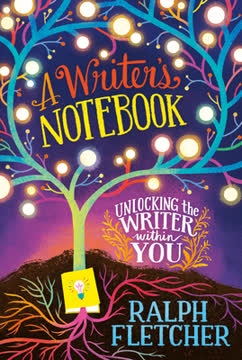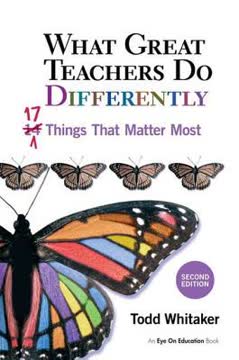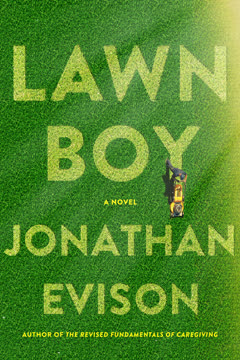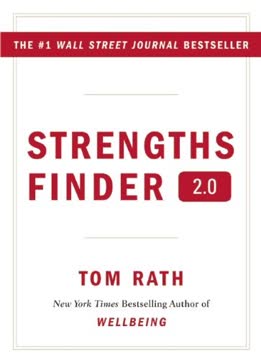Key Takeaways
1. A Writer's Notebook: Your Personal Idea Incubator
A writer's notebook is like that ditch—an empty space you dig in your busy life, a space that will fill up with all sorts of fascinating little creatures. If you dig it, they will come. You'll be amazed by what you catch there.
A safe haven for ideas. A writer's notebook serves as a protective incubator for your infant ideas, allowing them to grow and develop over time. Unlike a diary or reading journal, it's a place to record your reactions to the world around you, capturing thoughts, feelings, and observations that might otherwise slip away.
Personalize your notebook. Your notebook should reflect your personality. It can be a small pad, a beautiful journal, or even a digital file. The important thing is to make it easily accessible so you can jot down ideas whenever inspiration strikes. Use it to collect snippets of conversation, interesting facts, or sudden flashes of inspiration.
Regular use builds habit. By consistently writing in your notebook, you develop the habit of living a "writing kind of life." This practice helps you become more attuned to the world around you, sharpening your observational skills and providing a wealth of material for future writing projects.
2. Capture Life's Small Moments to Fuel Your Writing
Write small. It makes a difference.
Focus on details. Train yourself to notice and record the small, seemingly insignificant details of everyday life. These specific observations can bring your writing to life and make it more relatable to readers. Instead of broad generalizations, look for concrete, sensory details that paint a vivid picture.
Use all your senses. When describing a scene or experience, engage all five senses:
- Sight: What colors, shapes, and movements do you see?
- Sound: What noises, music, or silence do you hear?
- Smell: What scents, aromas, or odors are present?
- Taste: What flavors can you detect?
- Touch: What textures, temperatures, or sensations do you feel?
Create mind pictures. Practice taking mental photographs of interesting scenes or moments. Later, describe these images in your notebook, focusing on the details that made them memorable. This exercise helps develop your descriptive writing skills and builds a reservoir of vivid imagery for future use.
3. Explore Memories and Emotions Through Writing
Exploring a memory includes looking into not only what happened but also how it affected you then, and how it affects you now.
Dive deep into memories. Use your notebook to explore significant memories from your past. Don't just recount what happened; delve into the emotions associated with the experience. Consider how the event impacted you at the time and how your perspective may have changed over the years.
Be honest and vulnerable. Allow yourself to write about difficult or painful experiences. This raw, emotional writing can be therapeutic and often leads to powerful, authentic pieces. Remember, your notebook is a private space where you can be completely honest with yourself.
Use writing prompts. To spark memory exploration, try these prompts:
- Describe your childhood home in detail
- Write about a time you felt truly afraid
- Recall a moment of unexpected kindness
- Describe your first heartbreak
- Write about a decision you regret
4. Collect Inspiring Words and Phrases
My truest inspiration comes from the poems and paragraphs of real people practicing the writing craft.
Create a personal anthology. Use your notebook to collect snippets of writing that inspire or move you. This can include quotes from books, song lyrics, overheard conversations, or even your own spontaneous thoughts. Having these words of inspiration readily available can help motivate you during challenging writing sessions.
Study and imitate. Analyze the writing you admire. What makes it effective? How does the author use language to create impact? Try imitating the style or structure of pieces you find particularly compelling. This exercise, known as "writing off the text," can help you develop your own unique voice.
Cultivate a writer's ear. Pay attention to the rhythm and cadence of language in everyday life. Note down interesting turns of phrase, regional expressions, or unique ways people describe things. This collection of authentic language can add depth and realism to your writing, especially when crafting dialogue.
5. Use Lists to Organize Thoughts and Generate Ideas
You can use your notebook to list unusual scientific or historical facts.
Harness the power of lists. Lists are a versatile tool for writers, helping to organize thoughts, generate ideas, and spark creativity. Some types of lists to consider:
- Favorite words or phrases
- Writing goals and project ideas
- Interesting facts or trivia
- Character traits or plot elements
- Sensory details for a specific setting
Brainstorm through listing. When exploring a new topic or trying to overcome writer's block, start by making a list of everything you know or wonder about the subject. This free-association technique can lead to unexpected connections and fresh ideas.
Revisit and expand. Periodically review your lists, adding new items as they occur to you. You might find that an idea that seemed insignificant when first jotted down becomes the seed for a larger project when revisited later.
6. Embrace the Power of Honest, Raw Writing
Intense writing like this holds nothing back. This chapter is about writing-as-lifejacket: the writing you do because your heart will burst if you don't write it.
Write without censorship. In your notebook, allow yourself to write freely without worrying about grammar, style, or what others might think. This raw, unfiltered writing often leads to the most powerful and authentic material. It's a way to access your deepest thoughts and emotions.
Explore difficult topics. Use your notebook as a safe space to write about challenging subjects, personal struggles, or controversial ideas. This type of writing can be cathartic and may lead to important insights or breakthroughs in your work.
Write unsent letters. Practice writing letters to people (living or dead) that you don't intend to send. This exercise allows you to express thoughts and feelings you might not otherwise voice, potentially leading to powerful writing material. Examples:
- A letter to a lost loved one
- An apology you never gave
- A confrontation you wish you had
- A thank you to someone who changed your life
7. Reread and Mine Your Notebook for Writing Gold
Rereading. It sounds easy, and in some ways it is. But reading your writer's notebook is different than reading a book. When I read a book or a poem, I am focusing on being the reader. When I read my own notebook my attention is split: I am half-reader and half-writer, all at the same time.
Schedule regular review sessions. Set aside time to reread your notebook entries periodically. This practice allows you to rediscover forgotten ideas and see patterns or themes emerging in your writing. Approach this review with a critical eye, looking for potential seeds of larger projects.
Mark promising ideas. As you reread, develop a system for marking entries that seem particularly promising. This could be starring important passages, using colored tabs, or creating an index of key ideas. These markers will help you quickly locate potential material for future writing projects.
Look for connections. During your review, try to identify connections between different entries. Sometimes, seemingly unrelated ideas can combine in unexpected ways to create something entirely new. Be open to these creative possibilities.
Develop selected entries. Choose one or two promising ideas from your notebook and spend time developing them further. This might involve:
- Expanding a brief observation into a detailed description
- Turning a memory into a personal essay
- Using a collected quote as the starting point for a poem
- Developing a list of facts into an informative article
By regularly mining your notebook in this way, you transform it from a passive collection of thoughts into an active generator of writing projects.
Last updated:
FAQ
What is "A Writer's Notebook: Unlocking the Writer Within You" by Ralph Fletcher about?
- Purpose of the Book: The book is a practical guide for young and aspiring writers on how to keep and use a writer’s notebook as a tool for developing writing skills and living a “writing kind of life.”
- Content Overview: Fletcher shares personal anecdotes, examples from his own notebooks, and entries from both published authors and young writers to illustrate how a notebook can capture ideas, memories, observations, and inspiration.
- Focus on Process: The book emphasizes the process of collecting, reflecting, and experimenting with writing, rather than producing polished pieces right away.
- Encouragement to Experiment: Readers are encouraged to make their notebooks unique, experiment with different types of entries, and use the notebook as a safe space for honest self-expression.
Why should I read "A Writer's Notebook" by Ralph Fletcher?
- Unlock Your Creativity: The book provides concrete strategies to help writers of all ages tap into their creativity and notice the world around them.
- Practical Writing Advice: Fletcher offers actionable advice and exercises that can be immediately applied to improve writing skills.
- Inspiration from Real Writers: The inclusion of notebook entries from both professional authors and students makes the advice relatable and motivating.
- Personal Growth: The book encourages self-reflection, emotional honesty, and the development of a personal writing voice.
What are the key takeaways from "A Writer's Notebook" by Ralph Fletcher?
- Notebooks Are Essential Tools: Keeping a writer’s notebook is one of the best ways to nurture and develop as a writer.
- Capture Life’s Details: Notebooks are for collecting stories, observations, memories, and “seed ideas” that may later grow into finished pieces.
- Embrace Imperfection: Most notebook entries won’t become published work, but the process of writing and reflecting is invaluable.
- Personalization is Key: There is no single right way to keep a notebook—make it your own and let it reflect your personality and interests.
How does Ralph Fletcher define a writer’s notebook, and how is it different from a diary or journal?
- Not Just a Diary: A writer’s notebook is not a daily record of events or feelings like a diary; it’s a place to capture what moves, angers, amazes, or inspires you.
- Tool for Writers: It’s a working tool for writers to jot down observations, overheard conversations, memories, and ideas for future writing.
- Flexible and Personal: The notebook can include lists, sketches, clippings, and anything else that sparks creativity.
- Focus on Reactions: Unlike a reading journal or school assignment, a writer’s notebook is about recording your unique reactions to the world.
What are the main types of entries or content Fletcher recommends for a writer’s notebook?
- Unforgettable Stories: Record stories that move you, whether from your own life, the news, or overheard conversations.
- Fierce Wonderings: Write about questions and mysteries that haunt or fascinate you, even if they have no easy answers.
- Writing Small: Focus on capturing vivid, specific details and sensory images rather than generalities.
- Seed Ideas and Mind Pictures: Jot down ideas for future writing and mental snapshots of interesting scenes or moments.
- Lists, Memories, and Snatches of Talk: Keep lists of favorite words, memories, and snippets of dialogue or overheard speech.
How does "A Writer’s Notebook" by Ralph Fletcher help writers generate and develop ideas?
- Incubate Seed Ideas: The notebook acts as an incubator for new ideas, allowing them to grow and develop over time before becoming full stories or poems.
- Encourage Observation: Fletcher teaches writers to pay close attention to the world, using all their senses to notice details worth writing about.
- Rereading for Inspiration: Regularly rereading your notebook helps you rediscover forgotten ideas and find “crystals” worth developing.
- Experimentation and Play: The notebook is a safe space to try out new styles, voices, and forms without fear of judgment.
What specific advice does Ralph Fletcher give about writing with detail and “writing small”?
- Focus on Specifics: Instead of general words like “fun” or “nice,” use concrete details that paint a vivid picture for the reader.
- Use All Senses: Describe what you see, hear, smell, taste, and touch to make your writing come alive.
- Capture Small Moments: Even tiny, seemingly insignificant moments can reveal deep truths and make writing more authentic.
- Crack Open Generalities: When you find yourself using vague language, stop and ask what specific details are underneath those words.
How does "A Writer’s Notebook" by Ralph Fletcher address emotional honesty and writing about difficult topics?
- Safe Space for Truth: The notebook is presented as a private place where writers can be completely honest, even about painful or confusing feelings.
- Writing as Lifejacket: Fletcher describes writing as a way to process and survive strong emotions, such as grief, anger, or loneliness.
- Encourages Courage: The book acknowledges that writing honestly takes practice and bravery, but it’s essential for authentic writing.
- Examples from Young Writers: The book includes raw, heartfelt entries from students dealing with divorce, loss, and other challenges.
What role do lists, quotes, and other writers’ work play in a writer’s notebook according to Fletcher?
- Lists as Brainstorming Tools: Lists help writers brainstorm ideas, track goals, and collect interesting facts or words.
- Quotes for Inspiration: Copying favorite lines or passages from other writers provides motivation and models of excellent writing.
- Imitation and “Writing Off the Text”: Trying to write in the style of admired authors can help develop your own voice.
- Personal Anthology: The notebook becomes a personal collection of writing that inspires and challenges you.
How does "A Writer’s Notebook" by Ralph Fletcher suggest using memories and artifacts in writing?
- Mining Personal History: Memories are described as a writer’s most important possession, providing rich material for stories and poems.
- Describing Places and Objects: Writing about the places and objects connected to memories can help bring them to life.
- Including Artifacts: Taping in photos, clippings, ticket stubs, or even small objects can spark further writing and preserve important experiences.
- Mental Photographs: Even without physical artifacts, writers can use their imagination to revisit and describe important moments.
What is the process Fletcher recommends for rereading and revisiting your writer’s notebook?
- Sift for Gems: Reread your notebook regularly to find entries or phrases that still excite or interest you.
- Mark Promising Ideas: Circle, underline, or star entries that have potential for further development.
- Be Selective and Generous: Don’t expect every entry to be a masterpiece, but trust your instincts about what’s worth pursuing.
- Boil Down to the Best: Like making maple syrup, most of what you write will be “sap,” but a few ideas will become the “syrup” of your best writing.
What are the best quotes from "A Writer’s Notebook" by Ralph Fletcher and what do they mean?
- “A writer’s notebook is like that ditch—an empty space you dig in your busy life, a space that will fill up with all sorts of fascinating little creatures. If you dig it, they will come.”
- This metaphor highlights the importance of making space for creativity; if you create the opportunity, ideas will come.
- “Write small. It makes a difference.”
- Focusing on small, specific details brings writing to life and makes it more authentic.
- “Notebooks are…well, it’s like you have sparks from a campfire that could start a fire. They haven’t yet, but they could any time.”
- Notebooks are full of potential; even if ideas aren’t used immediately, they may ignite future writing.
- “The best chance you have of making your notebook work for you is to let it reflect your personal style.”
- There’s no single right way to keep a notebook; it should be as individual as the writer.
What is the overall message and impact of "A Writer’s Notebook: Unlocking the Writer Within You" by Ralph Fletcher?
- Empowerment Through Writing: The book empowers readers to see themselves as writers and to value their own experiences and observations.
- Writing as a Lifelong Practice: Keeping a writer’s notebook is presented as a lifelong habit that supports growth, creativity, and self-understanding.
- Inclusivity and Flexibility: Fletcher’s approach is inclusive, encouraging everyone to find their own way of using a notebook.
- Inspiration and Encouragement: The book is filled with encouragement, practical tips, and inspiration for writers at any stage, making it a valuable resource for anyone who wants to write.
Review Summary
A Writer's Notebook receives mostly positive reviews, with readers praising its practical advice for young writers and teachers. Many find it inspirational and useful for classroom instruction. Some critics note its repetitive nature and simplistic approach, while others appreciate its straightforward guidance. The book is particularly valued for its examples and ideas for keeping a writer's notebook. Several reviewers mention wishing they had discovered it earlier in their writing journey, highlighting its potential impact on aspiring writers of all ages.
Similar Books
Download PDF
Download EPUB
.epub digital book format is ideal for reading ebooks on phones, tablets, and e-readers.








